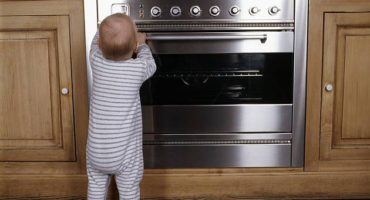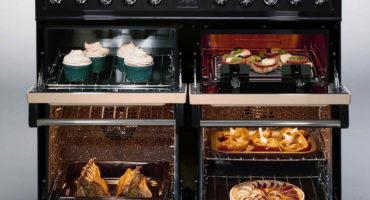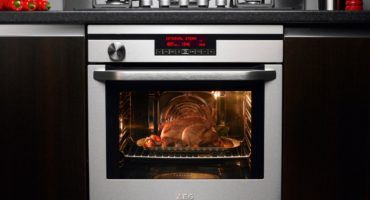The attractive appearance of glassware makes it very popular and in demand for table setting. But at the same time, the realization that glass could crack under the influence of high temperature did not give courage to the hostesses to use such dishes for cooking.
But today a new type of glass has appeared, designed for use in ovens. But even the exact wording of the appointment does not fully answer the question of whether it is still possible to put glassware in the oven as a container for cooking.
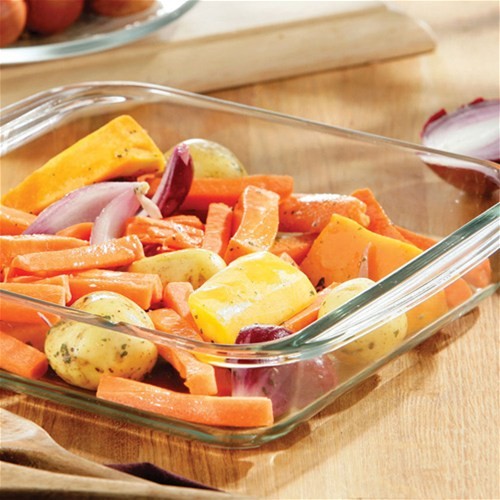
Can I use glassware in the oven?
Features of glassware for the oven
Glass dishes for the oven are made from a pre-prepared type of material that can withstand temperatures of more than 300 degrees.
Such glass is called heat-resistant or heat-resistant. The walls and bottom of such dishes in most cases have a thickness of 0.6 to 0.8 mm, which is a rather large value compared to this value for ordinary plates and mugs.
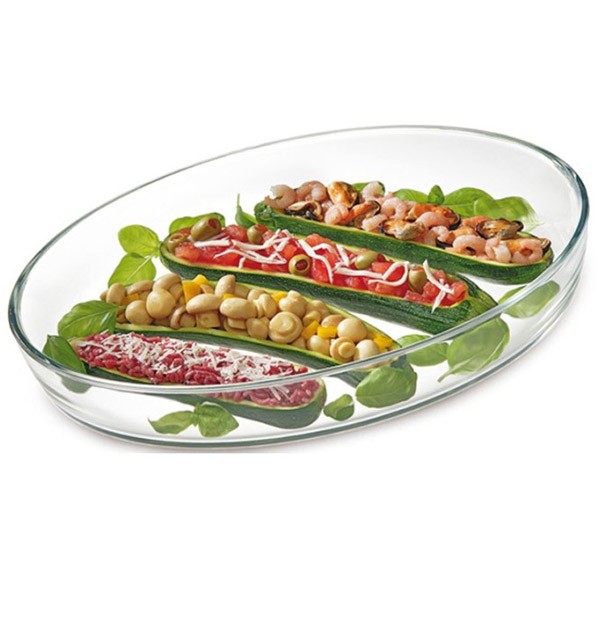
Glassware is able to withstand temperatures of more than 300 degrees
In shape, such dishes can be either round or rectangular. The choice in this case depends entirely on the preferences of the hostess, as well as on the name of the dish that she decided to cook.
Also, a lid made of the same material is most often included with such a container, which makes it possible to use dishes not only for cooking, but also for storing the contents, providing it with reliable protection from external conditions.
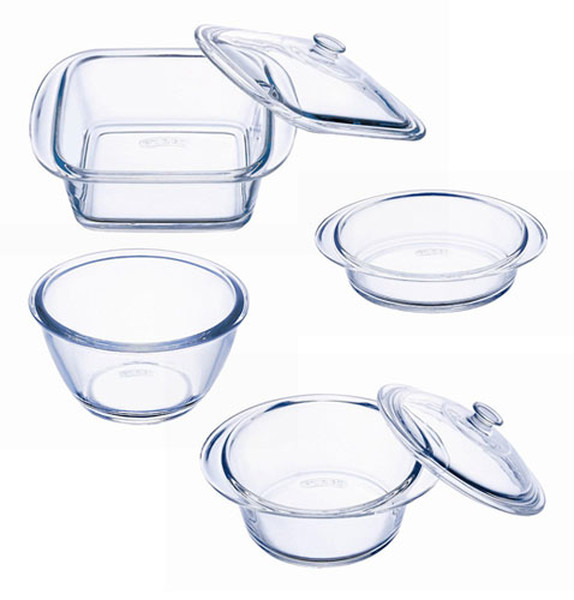
Variety of shapes
Advantages and disadvantages of glassware for the oven
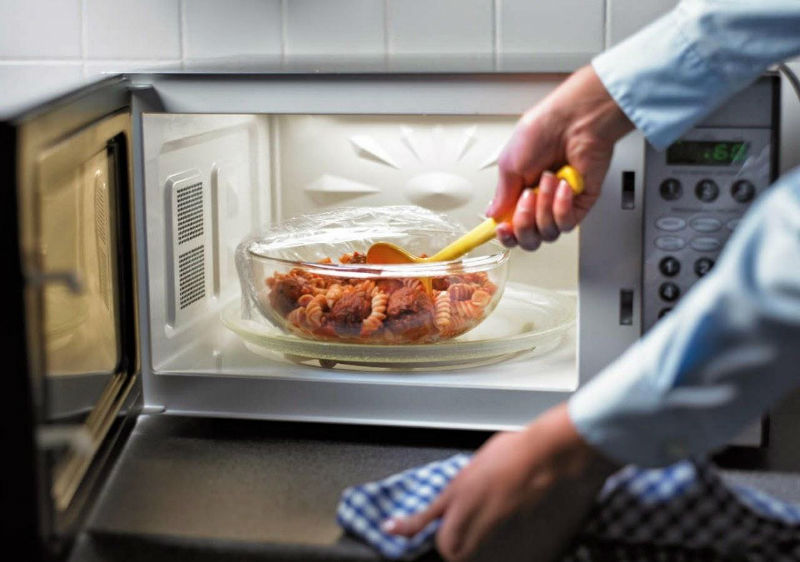
Initially, glassware was used only for use in a microwave oven.
At first, the use of heat-resistant glassware in most cases was carried out for cooking in the microwave. But over time, appreciating all its advantages, the hostesses with pleasure began to use it for cooking certain dishes in the oven. The main such advantages include:
- transparency. Compared with metal forms, which were most often used for cooking in the spirit of the closet and did not allow to see the state of the dish at the time of its preparation. In order to understand whether the cake was baked below or whether the chicken was fried, it was necessary to use various improvised means. Glassware because of its transparency makes it possible to control everything that happens below the top layer;
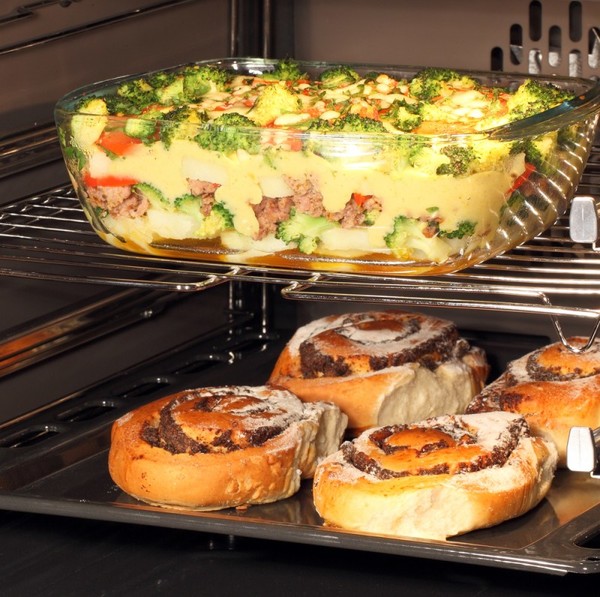
Transparency allows you to control the cooking process.
- low thermal conductivity, due to which the finished dish remains hot longer. Enhances this quality of glassware that its walls are quite thick and when covered with a lid, the dish will remain hot for a very long time;
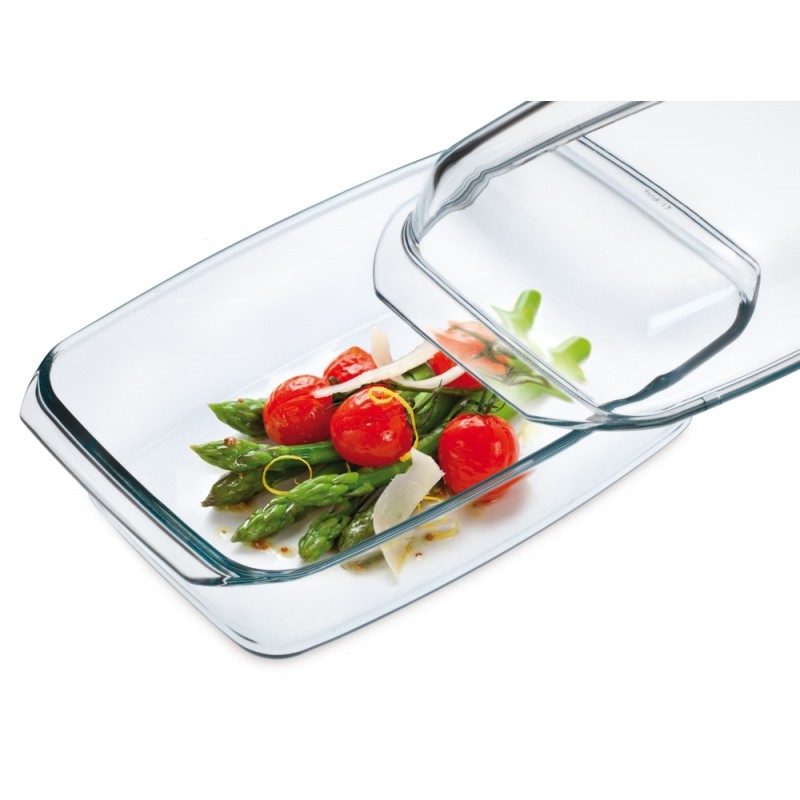
Possibility of keeping food hot for a long time
- chemical passivity, which is the absence of any effect of glass on the taste and smell of the finished dish. Even in the process of strong heating, tempered glass will not react with food and emit odors, not to mention substances that could affect the taste of baking or in some way negatively affect the well-being and human health;
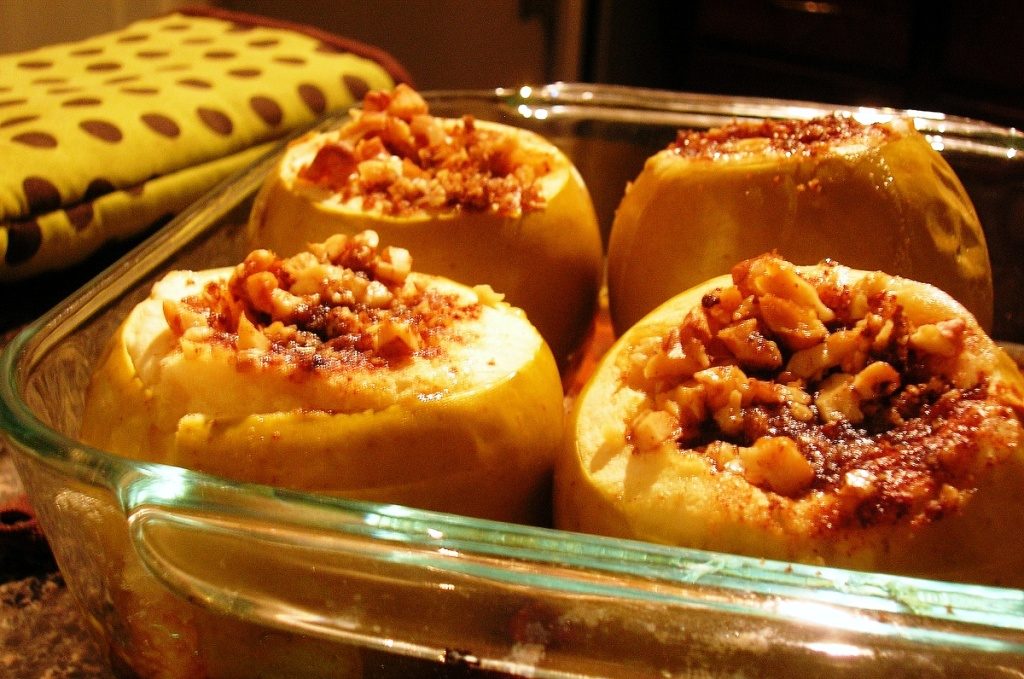
Chemical passivity of the glass - no effect on the smell and taste of the dish
- the possibility of long-term storage. Even if the dish is not prepared to be consumed immediately, but stored for a certain time, it is not necessary to remove it from the container. The main thing is to allow the cooked to cool well, cover and then refrigerate. Glass can withstand not only elevated temperatures, but also lowered ones. Therefore, one should not worry about his condition;
- aesthetically pleasing appearance, which eliminates the need for shifting dishes after cooking in a more beautiful container. Glassware in itself is beautiful and will not spoil the impression of what was cooked in it, even when served on a festive table;
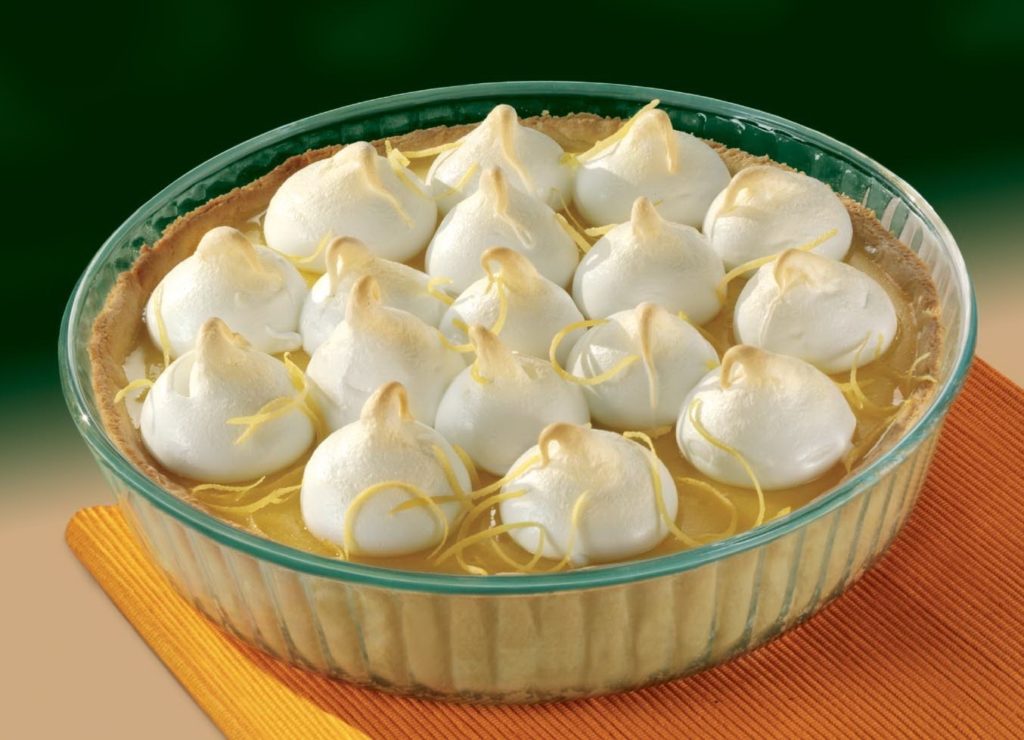
The aesthetically attractive appearance of glass objects allows you to simultaneously use them for serving
- durability of use, which lies in the fact that the appearance of such dishes is almost impossible to spoil. Even with very prolonged use, it will not darken, and no plaque will appear on it. Even if this happens during the preparation of a dish, with the help of improvised tools such as a soft sponge and dishwashing detergent, everything will be quickly wiped off.
But with all the inherent advantages of glassware when used in an oven, it also has a number of disadvantages.
First of all, it should be noted that low thermal conductivity, which allows you to keep the dish hot longer after cooking, is the reason for the uneven heating of the container during cooking. In this case, you must be prepared that the dish is baked somewhere better, and somewhere worse. Owners of an electric oven, which has a more uniform heating than gas, can not feel this drawback. Therefore, in the second case, it is still better to use objects with higher thermal conductivity for cooking.
It is also worth noting that, despite the good susceptibility of both high and low temperatures, the glass may not withstand its sharp difference. For this reason, do not add cold liquids to the preheated container or place cool ingredients in them. Their temperatures should be about the same. Therefore, it is impossible to put a completely non-cooled container in the refrigerator. The consequence of these actions may be the appearance of cracks, which in turn will lead to the need for its disposal.
Like any other glass, even tempered and more durable, it is very much afraid of strong mechanical stresses. In the process of applying these containers, you can not hit them, and even more so drop them. This will inevitably lead to a break.
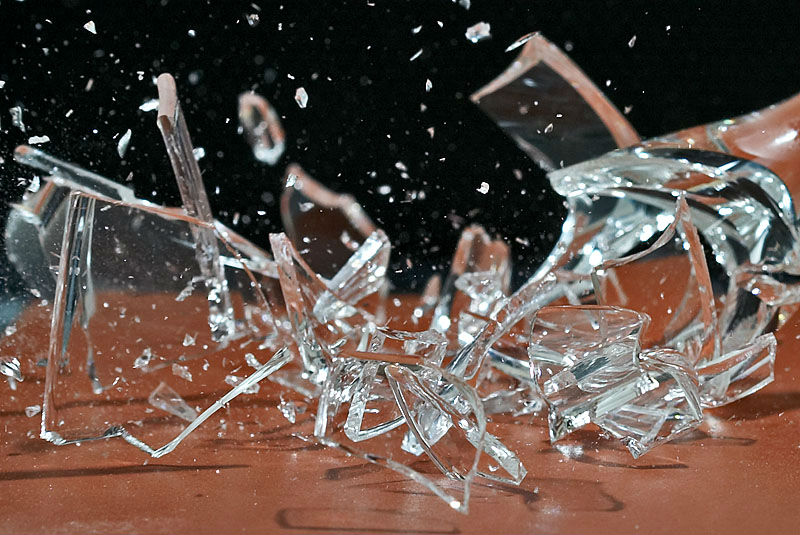
With strong mechanical stress, glass objects can easily break.
Basic rules for using glassware in the oven
The basic rules for using glass in the oven include:
- the need to install the container only in a cold or only slightly warmed oven;
- the extraction of the container is best done using dry tacks;
- Before putting the container in the oven, you need to make sure that there is no excess moisture on it outside;
- Do not place it after it has been removed from the oven on a cold or wet surface.
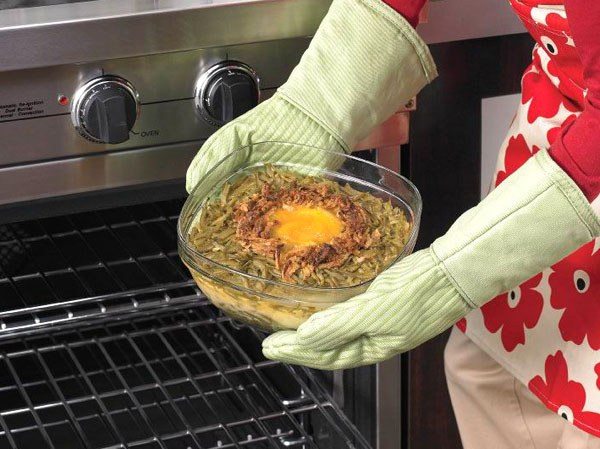
Dry containers must be removed from the oven.
Thus, a well-selected glass dish for an oven, when used properly, can be more convenient to use than other similar items. At the same time, it is not necessary to install it on a gas or electric panel for cooking, since, despite the thermal stability, its uneven heating will not allow to cook the dish qualitatively, and can also lead to cracking of the material. In addition, its aesthetically attractive appearance allows you to use it when setting the table.But do not forget about the fragility that is inherent in any type of glass, and avoid using strong mechanical stresses when using it.
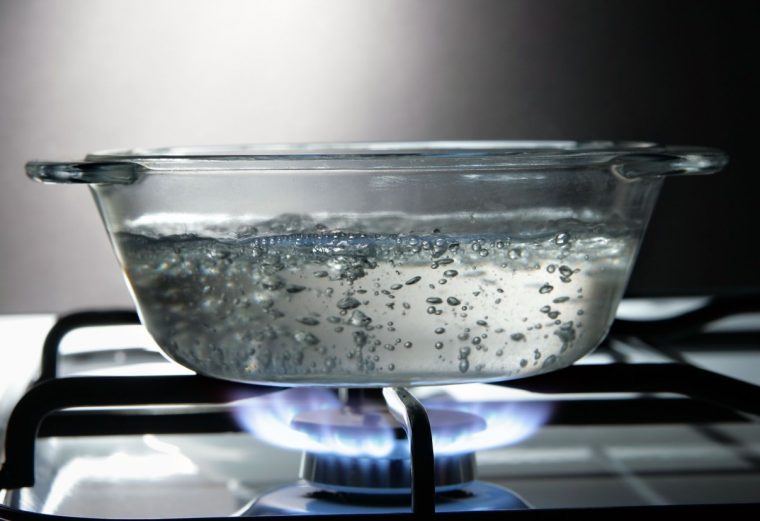
It is better not to use a glass pan on a gas or electric panel.

